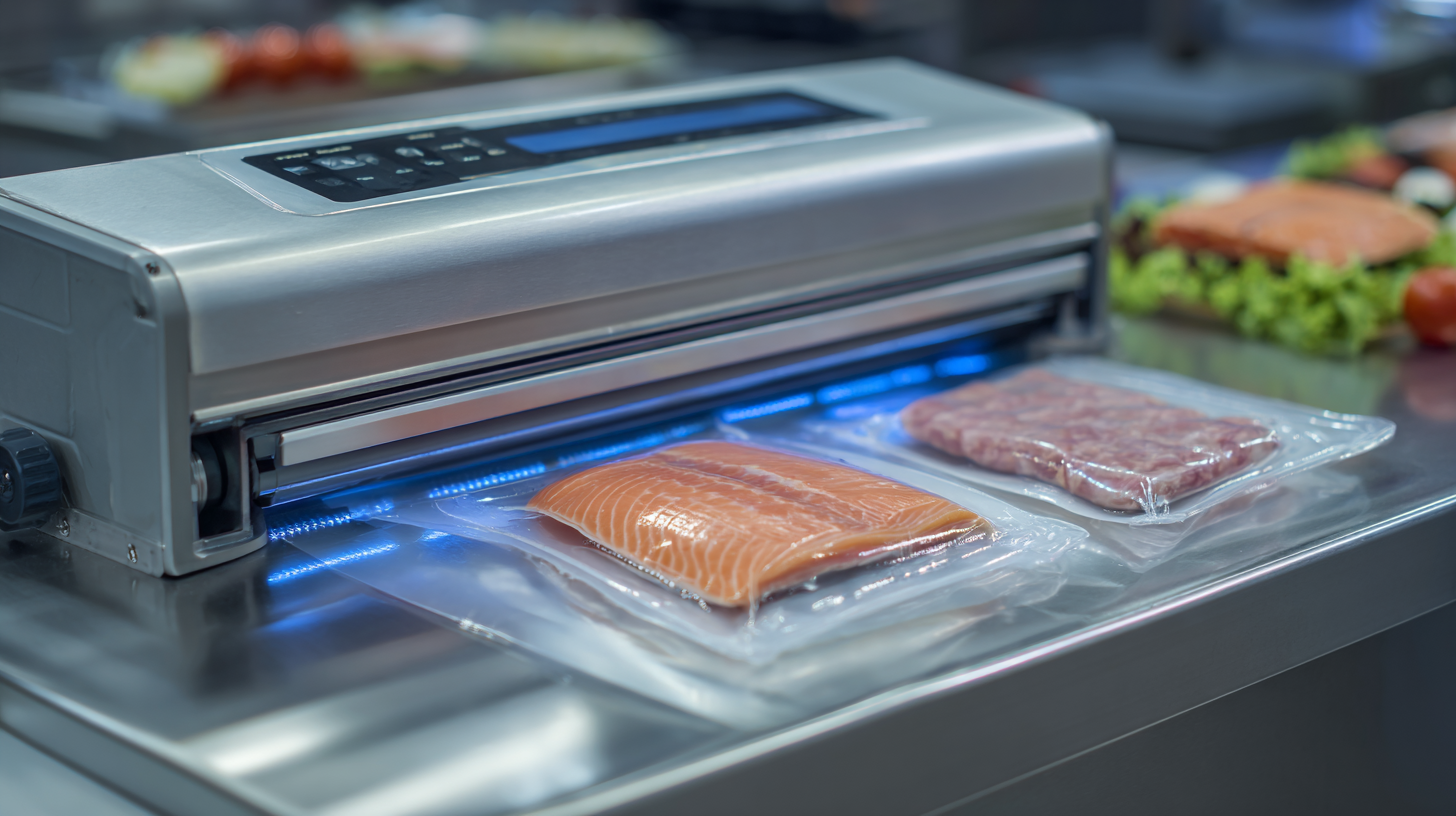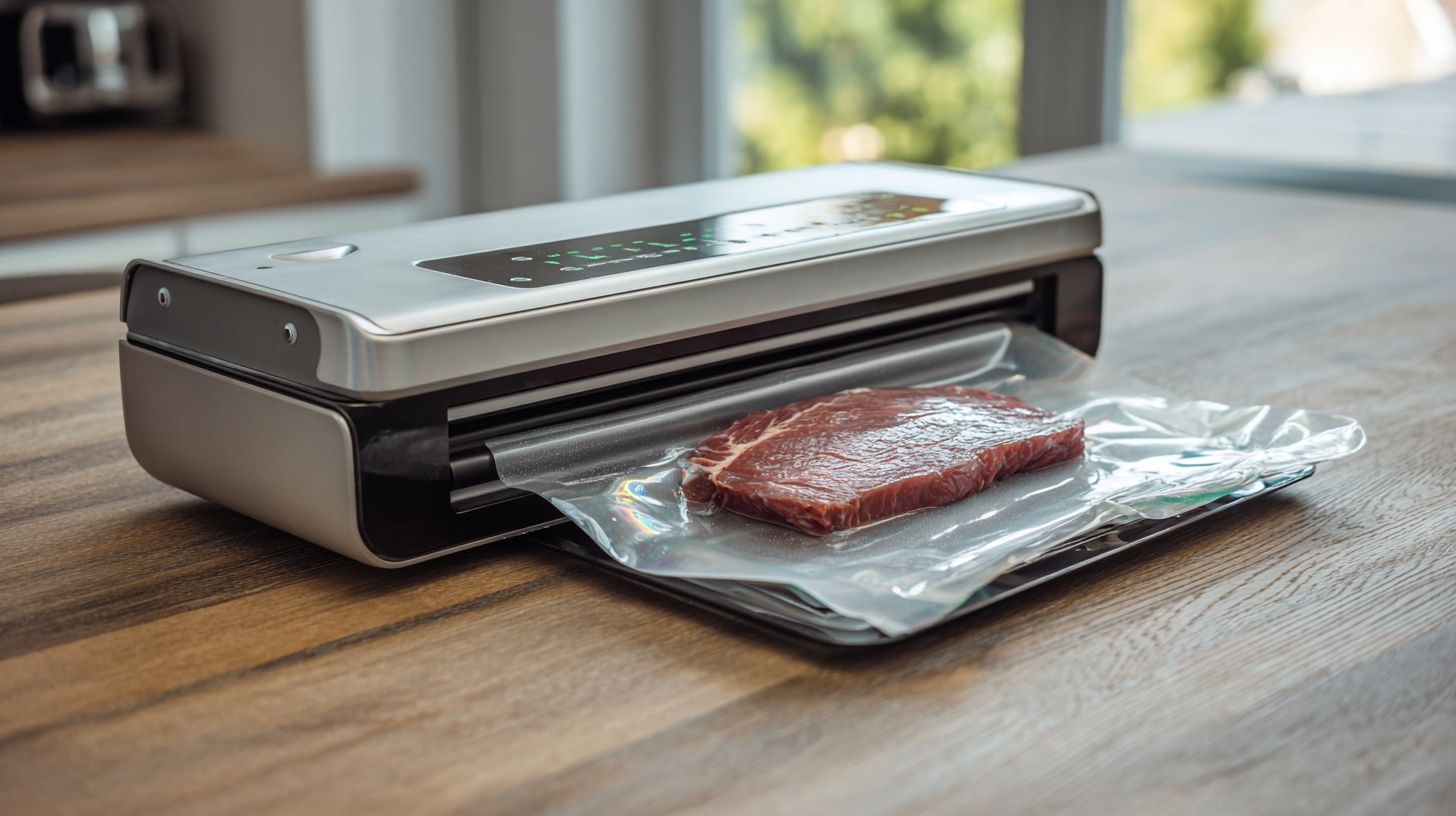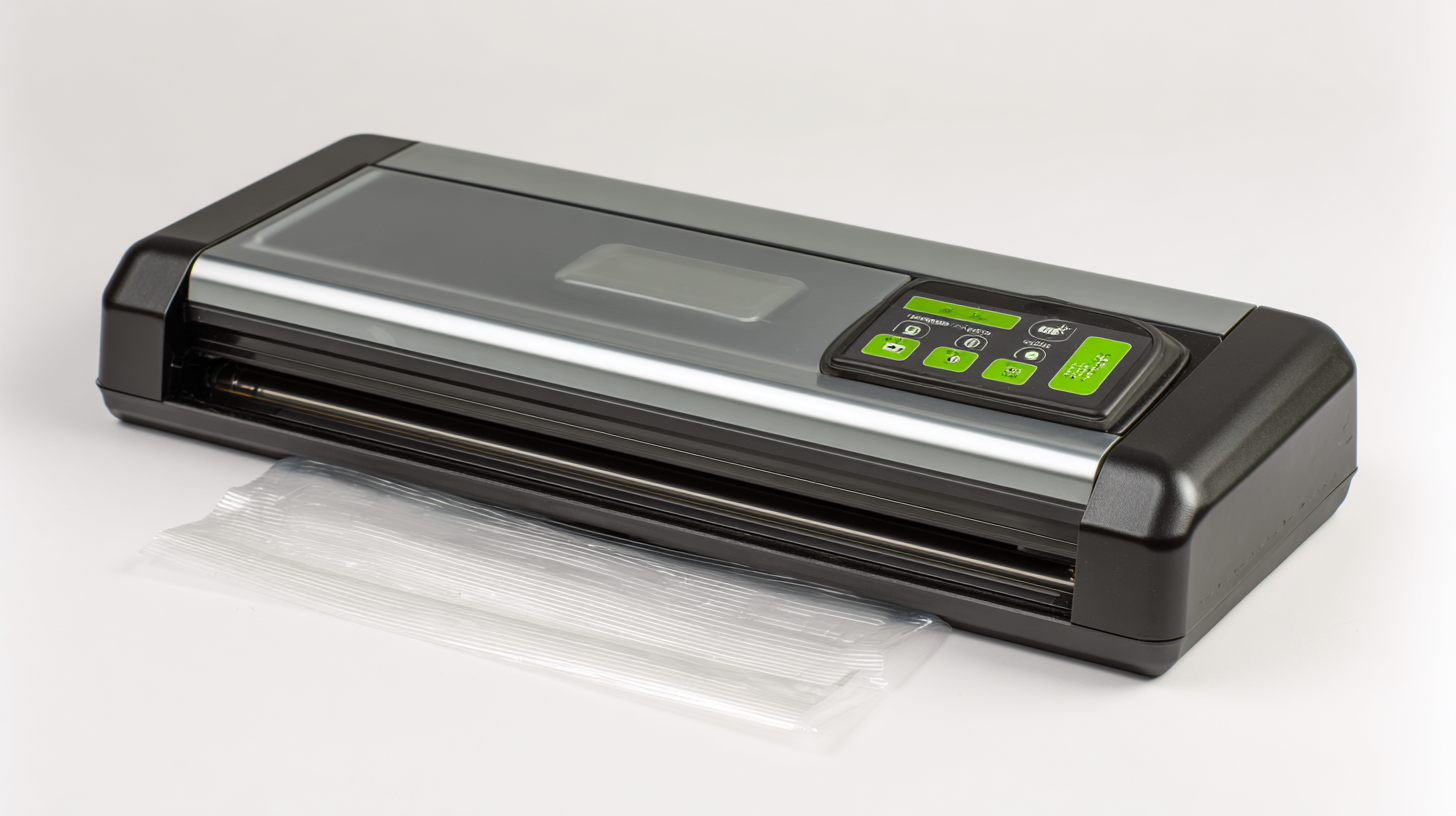About Us | Blog | FAQs | Tips/Troubleshoot | Contact Us | Machine Manuals | Demo Videos
Ultimate Guide to Choosing the Best Industrial Vacuum Sealer Options
In the competitive landscape of packaging solutions, the industrial vacuum sealer stands out as an essential tool for businesses aiming to enhance product longevity and maintain quality. According to a report by Zion Market Research, the global vacuum sealer market is projected to reach approximately $9.2 billion by 2026, growing at a CAGR of around 5.5% from 2020 to 2026. This growth is attributed to the rising demand for packaged food and the need for efficient storage solutions across various industries. With Chinese manufacturers leading the charge, known for their unwavering quality and reliability, selecting the right industrial vacuum sealer can significantly impact operational efficiency and product preservation. In this ultimate guide, we will dive into the best options available, ensuring you make an informed choice that aligns with industry standards and your specific needs.

Table of Contents
[Hide]
Key Features to Look for in Industrial Vacuum Sealers for 2025
When selecting the best industrial vacuum sealer for 2025, several key features should be at the forefront of your decision-making process. First and foremost, consider the sealing technology used; advanced options such as chamber vacuum sealers provide uniform sealing and are ideal for liquids and delicate items. Additionally, look for adjustable vacuum settings that allow for customization based on the specific packaging needs, which can help prevent damage to fragile products during sealing.

Another important aspect is the durability and build quality of the machine. Industrial vacuum sealers should be made from robust materials that can withstand heavy use in high-demand environments. Keeping an eye on energy efficiency is also crucial, as more manufacturers are emphasizing eco-friendly designs in their equipment. Finally, don't overlook the ease of maintenance and availability of replacement parts; a machine that is easy to maintain will save time and money in the long run, ensuring that your operations remain smooth and efficient.
Emerging Technologies in Vacuum Sealing: What to Expect in the Next Few Years
As technology continues to evolve, the vacuum sealing industry is experiencing significant advancements that promise to enhance efficiency and effectiveness. Emerging technologies including smart sensors and IoT integration are set to revolutionize how industrial vacuum sealers operate. These innovations will enable machines to monitor and adjust sealing conditions in real-time, ensuring optimal performance and reducing waste.
In addition to improved connectivity, the integration of eco-friendly materials into vacuum sealing processes is on the rise. More manufacturers are focusing on sustainable practices by using recyclable materials and energy-efficient technologies. This trend not only benefits the environment but also appeals to increasingly conscientious consumers.
Tip: Research the sustainability practices of the brands you're considering. Investing in eco-friendly products not only enhances your brand image but can also lead to cost savings in the long run.
Top Alternatives to Traditional Vacuum Sealers for Industrial Applications
When considering the best alternatives to traditional vacuum sealers for industrial applications, it's crucial to recognize how these innovations can enhance food preservation and efficiency. Traditional vacuum sealers often rely on methods that may not be sustainable in the long run, leading the industry to explore options that minimize environmental impact. For instance, innovative technologies such as eccentric disc pumps are becoming popular as they provide more efficient alternatives to conventional lobe pumps, reducing waste and operational mess in food processing facilities.
One of the standout trends in food preservation is the increasing use of biodegradable packaging options. According to recent reports, biopolymers are emerging as a viable alternative to non-biodegradable plastics, offering enhanced food safety and sustainability. Tips for selecting the best vacuum sealer alternatives include looking for models that can accommodate these new materials, ensuring airtight seals that preserve food quality, while also minimizing waste. Additionally, consider systems that incorporate advanced technology for better monitoring of spoilage, particularly in sensitive items like fresh seafood, which can significantly benefit from effective sealing and packaging interventions.
Moreover, as the microbial food revolution gains traction, industries can leverage microorganisms for food sources with lower carbon footprints. Integrating vacuum sealing with these biological innovations can not only enhance shelf life but also contribute to more sustainable practices. Therefore, when choosing an industrial vacuum sealer, prioritize features that allow flexibility and adaptation to these groundbreaking approaches in food technology.
Comparison of Vacuum Sealer Types for Industrial Applications
Cost vs. Performance: Finding the Best Value in Industrial Vacuum Sealers
When selecting the best industrial vacuum sealer, one of the crucial considerations is the balance between cost and performance. Businesses often face the challenge of maximizing efficiency while staying within budget constraints. Higher-end vacuum sealers tend to offer advanced features, such as multi-chamber operation and programmable settings, which can significantly enhance productivity. However, these benefits must be weighed against their price tags, as the initial investment can be substantial.
On the flip side, more affordable models can still provide reliable performance, especially for smaller operations or those with less demanding sealing requirements. It’s important to evaluate the specific needs of your business, such as the volume of products being sealed and the types of materials used. By carefully analyzing factors like durability, ease of use, and warranty options, you can identify vacuum sealers that strike the right balance between cost and performance. Ultimately, the goal is to find an industrial vacuum sealer that not only fits your budget but also delivers the quality and efficiency vital for your operations.
Ultimate Guide to Choosing the Best Industrial Vacuum Sealer Options - Cost vs. Performance: Finding the Best Value in Industrial Vacuum Sealers
| Model | Cost ($) | Performance Rating | Seal Width (inches) | Cycle Time (seconds) | Warranty (years) |
|---|---|---|---|---|---|
| Model A | 500 | 4.5 | 16 | 30 | 2 |
| Model B | 750 | 4.8 | 20 | 25 | 3 |
| Model C | 450 | 4.2 | 14 | 35 | 1 |
| Model D | 950 | 5.0 | 24 | 20 | 5 |
| Model E | 600 | 4.6 | 18 | 28 | 2 |
Sustainability in Vacuum Sealing: Eco-Friendly Options and Trends in 2025
As we move towards a more sustainable future, the vacuum sealing industry is adapting to eco-friendly practices and technologies. In 2025, consumers can expect to see significant advancements in vacuum sealers that prioritize sustainability. Manufacturers are focusing on using biodegradable materials for bags and packaging, reducing the environmental impact of plastic waste. These innovations not only help to minimize ecological footprints but also cater to a growing consumer demand for sustainable choices in food preservation and storage.
Moreover, the trend towards energy-efficient vacuum sealers is gaining momentum. New models are being designed with lower energy consumption technologies, which not only conserve resources but also cut down on operational costs for businesses. Features such as solar-powered designs and energy-saving modes will likely become standard in the industry, as manufacturers respond to rising awareness about energy usage and climate change. This commitment to environmental responsibility not only enhances brand reputation but also aligns with consumer expectations for transparency and accountability in product sourcing and manufacturing processes.


